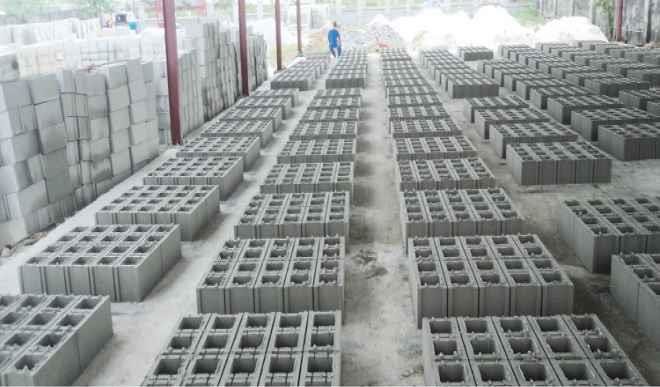Stakeholders want standard enforcement body on block-making industry
Bricks or blocks are important for any building; be it residential or commercial , because they give the building strength and shape. There are different types of concrete block available in the market and the materials used in making of these blocks include clay particle, concrete, stone, rubber, glass chips, aggregates and recycled plastic. In […]


Bricks or blocks are important for any building; be it residential or commercial , because they give the building strength and shape. There are different types of concrete block available in the market and the materials used in making of these blocks include clay particle, concrete, stone, rubber, glass chips, aggregates and recycled plastic.
In view of its importance, stakeholders in the real estate sector have called on the federal and state governments to put in place a body empowered by legislation, to monitor quality of blocks.
This, they said, would help prevent cases of building collapse in Nigeria.
They said the call became necessary in view of the role of block moulders in Nigeria’s building industry.
They made the call at a workshop organised by the Building Collapsed Prevention Guild (BCPG) Igando-Ikotun Cell, held in Lagos.
In her welcome address, the BCPG Cell Coordinator, Mrs. Adekemi Okusaga, a quantity surveyor, said the theme of the workshop, “Economic Recession and Inflation: Sustainable Quality in the Production of Sandcrete Blocks And Allied Products”, was carefully selected to address one of the main challenges in the built environment.
Chairman of the occasion, Wasiu Akewusola, who is the General Manager, New Towns Development Authority, Lagos and Chairman, Association of Professional Bodies of Nigeria (APBN), Lagos State chapter urged all stakeholders to close ranks and work towards forestalling building collapse in the country.
He said it was wrong for anybody to wait for disaster to occur before rising up to the challenge. He urged all stakeholders to be proactive in their efforts to having a better country and safer building industry.
In his keynote address, President BCPG, Kunle Awobodu, who noted that in the past, quality of blocks used for construction was not in doubt, however, said the story was not the same today and this had become a source of concern for construction professionals and for the overall safety in the Nigerian built environment. Awobodu, a builder, who lamented absence of a regulatory body for blocks’ production said the time had come for the governments to do something in that regard.
“Lack of regulation in the production of blocks has been the major source of this problem. Block making business has become an all-comers affair. The machine for manufacturing blocks is easily fabricated in all nooks and crannies without strict specifications and standard. There is no monitoring system for the quality of sand and water being used for block production,” he said.
Awobodu assured that his team would not relent in its efforts towards having a safer building industry in Nigeria.
On his part, President, National Association of Block Moulders of Nigeria (NABMON), Rasheed Adebowale, said apart from regulation issue, some so- called professionals are also the bane of block moulders, as some of them are in the habit of looking for cheaper blocks, which in turn leads to inferior block production.
Former president, Nigerian Institute of Structural Engineers, Dr. Victor Oyenuga, who specified in details processes for production of blocks, submitted that block production was an engineering business. “From the foregoing, block making is not an all comers affair, it is a serious engineering business and must be taken as such.
“It becomes imperative when the building is to be a load bearing form of construction which is the most widely used method here for bungalows and two storey (one suspended upper floor) buildings,” he said.
He added that all efforts should be made to meet the standard requirements of the code in the production of sandcrete blocks.
Head of Department of Building, University of Lagos, Prof. Godwin Idoro in his lecture identified four main groups including government-related causes, design-related causes, construction-related causes and material-related causes affecting block making in Nigeria.
Citing a study by the Standard Organisation of Nigeria (SON), the don said it was worrisome to know that five percent of Nigerian blocks were produced (moulded) to specifications. According to him, this assertion implied that 95 percent of the sandcrete blocks in circulation or that were used for construction were substandard.
But to prevent the production of substandard blocks, Idodo said that required the combined efforts of all stakeholders including governments and their Ministries, Departments and Agencies (MDAs), professional bodies, clients, designers and consultants, contractors, suppliers and block producers. He added that there must be development of codes and standards on sandcrete blocks by government agencies in collaboration with research institutions and professional bodies and regular training of block manufacturers on the standards.
“Governments should make it mandatory for blocks to carry the name of producers, brand name, date of manufacture and expiration like other manufactured products. Development and adoption of standard production flow chart by block producers. The issue of task force is a govt’s responsibility and no private body can do that all alone,” he said.
